The tea plant is an evergreen shrub with long, oval-shaped leaves and white flowers. The tender leaves, when processed, become tea.
Tea is a beverage made from the leaves of the tea plant. It can also refer to certain types of beverages, such as fruit tea or milk tea.
Originating in China, tea has been disseminated overseas since the Tang Dynasty, gradually developing into one of the world's three most popular beverages. In each country it has evolved into diverse and colorful tea cultures.
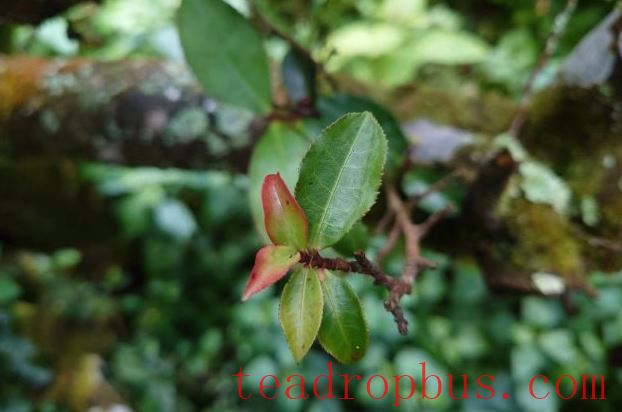
Yunnan Province, the core birthplace and gene pool of the world's tea plants, is the origin of Pu'er tea and the birthplace of Dian Hong (Yunnan black) tea, and is one of China's main tea-producing regions. There are 31 species and 4 variants of tea plants worldwide, 30 species and 4 variants of which are found in China, with 23 species and 3 variants native to Yunnan, accounting for 74.3% of the global total. According to the Green Food Development Center of Yunnan Province's 2025 Yunnan Tea Industry Green Development Report, the province's tea plantation area reached 8.03 million mu (approximately 535,333 hectares) in 2025, producing 557,000 tons of dried tea leaves. A total of 2.647 million mu (approximately 176,467 hectares) of green and organic tea gardens were certified, ranking first in the country. The full industrial value of Yunnan tea reached 150.42 billion RMB, marking the fourth consecutive year of stable growth.
Over time, Yunnan tea has developed its own unique character. In major tea-producing areas such as Xishuangbanna, Pu'er, Lincang, Dehong, and Baoshan, ethnic groups like the Bulang, the Lahu, and the Jinuo have lived alongside tea for generations, cultivating it as a way of life. This has resulted in distinct and rich ethnic cultures centered around tea, making a unique contribution to the development of China's tea industry and culture.
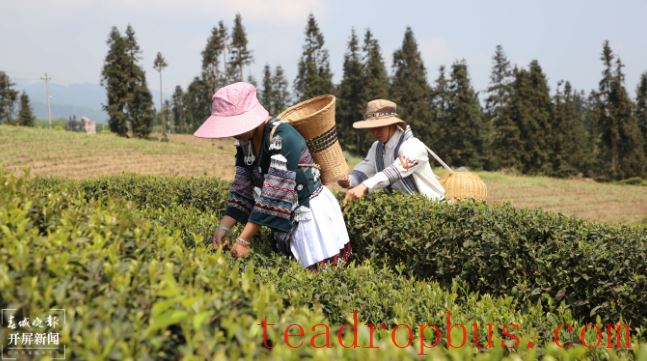
Today is World Tea Day
Yunnan offers you a cup of tea
↓↓↓
This cup of tea is steeped in history!
Yunnan is one of the origins of the world's tea plants and one of the earliest cradles of Tea culture.
From the oldest fossil of a tea family plant, the broad-leaved Magnolia found in Jinggu County, Pu'er City, to the vast number of ancient tea trees and ancient tea gardens that still exist along the Lancang River, and the incredibly rich tea germplasm resources… these are powerful witnesses to the origin of tea in China.
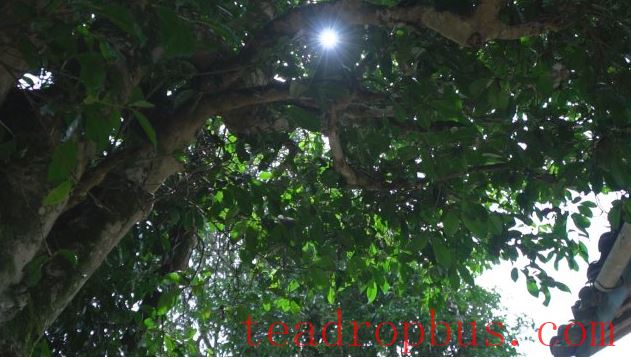
The indigenous ethnic minorities of Yunnan were among the first to discover wild tea, domesticate it, cultivate it, and use it.
“Tea grows on the mountains in Yinzhou. It is scattered and collected without any specific method of processing. The Mengshe people cook it with ginger, pepper, and Cinnamon.” This excerpt from The Book of the Nanzhao by Fan Cuò in the Tang Dynasty indicates that over a thousand years ago, the people of Yunnan had already formed a close relationship with tea, innovatively combining it with pepper, ginger, and cinnamon to create a beverage that resembles today's popular “health tea” in an early Yunnanese version. (Note: Yinzhou refers to the Yinzhou Circuit under the rule of the Nanzhao Kingdom, coexisting with the Tang Dynasty, with its administrative center located in today's Jingdong County, Pu'er City.)
Based on numerous ancient cultivated tea gardens and cultural relics, the people of southern Yunnan have long cultivated and processed tea, making the tea industry an important component of traditional agriculture and a source of economic livelihood in Yunnan up to this day.
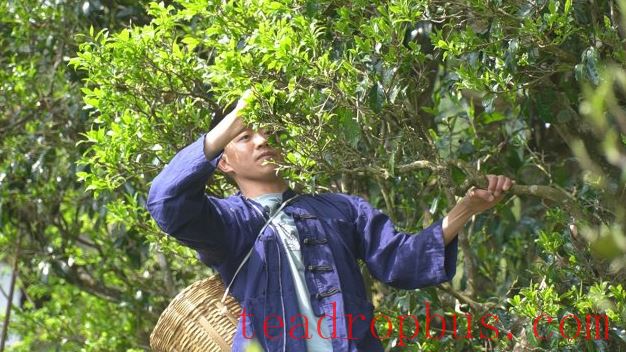
The long history of tea cultivation and processing in Yunnan not only adds depth to Chinese tea culture but also leaves behind precious resources and wealth for the development of the tea industry in Yunnan today.
Yunnan has a unique advantage in China – ancient tea trees (ancient tea gardens). Ancient tea trees are distributed across 63 counties in 15 prefectures throughout the province. Among the 479 ancient tea trees listed in Ancient Chinese Tea Trees, 295 are found in Yunnan, accounting for 61.6%. The total area of ancient tea tree resources in Yunnan reaches 329,600 mu (approximately 219,733 hectares), including 265,700 mu (approximately 177,133 hectares) of wild ancient tea tree populations and 63,900 mu (approximately 42,600 hectares) of cultivated ancient tea trees (gardens). There are over 100 famous ancient tea mountains, including Laobanzhang, Bingdao, Xigui, Yiwu, and Jingmai, as well as the 3,200-year-old Fragrant Bamboo Grove Golden Silk Tea Ancestor.
Within the 28,000-mu (approximately 18,667-hectare) ancient tea forest on Mount Jingmai, there are more than 3.2 million ancient tea trees. This is the largest, best-preserved, and oldest artificially cultivated ancient tea forest discovered worldwide, with a history of tea cultivation spanning over 1,000 years. On September 17, 2025, the Ancient Tea Forest Cultural Landscape of Jingmai Mountain, Pu'er, Yunnan, was successfully inscribed on the World Heritage List, becoming the world's first tea-themed world cultural heritage site and China's 57th world heritage site.
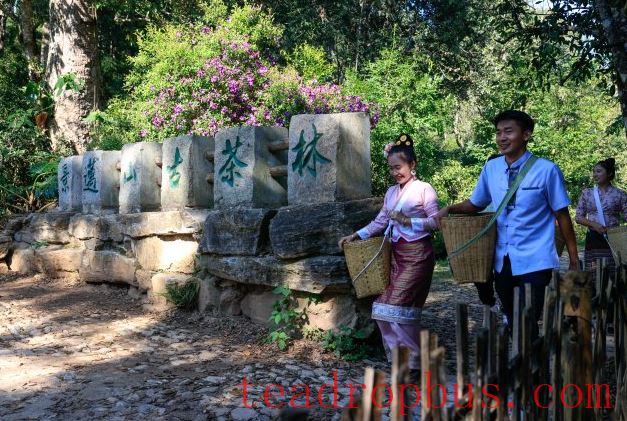
This cup of tea is a grand spectacle!
A small tea leaf in Yunnan holds countless possibilities!
Good mountains and good waters produce fine teas. Yunnan is located in the golden zone for tea plants, characterized by low latitude and high altitude. Its unique geographical location, complex terrain, and diverse climate and soil types provide an excellent “sanctuary” for the growth of tea plants.
Building upon high-quality raw materials, the people of Yunnan have continuously created and improved tea processing techniques. Today, Yunnan tea processing and product types are diverse, ranging from traditional to modern processing methods, raw and cooked teas, primary and refined products, and so on. Products come in various forms, including bricks, cakes, tuos, loose, teabags, tea jewels, tea paste, tea powder, and many others, each with its specific process. Diversity is highlighted in “one flavor per year,” “one flavor per warehouse,” and “one flavor per household.”
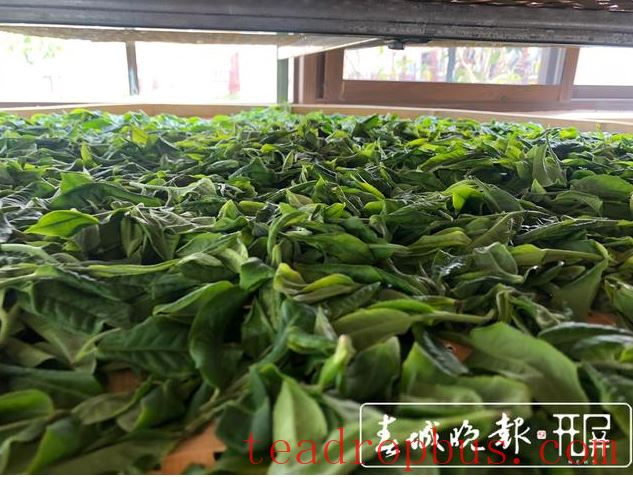
Depending on the production method, Yunnan tea can be categorized into six main types: Pu'er tea, Dian Hong (Yunnan black) tea, Green Tea, compressed tea, flower tea, and health tea, comprising over 100 varieties—
From Pu'er tea, Dian Hong (Yunnan black) tea, green tea, loose tea, flower tea, snow tea, and Honeysuckle tea, to cake tea, tuo tea, brick tea, square tea